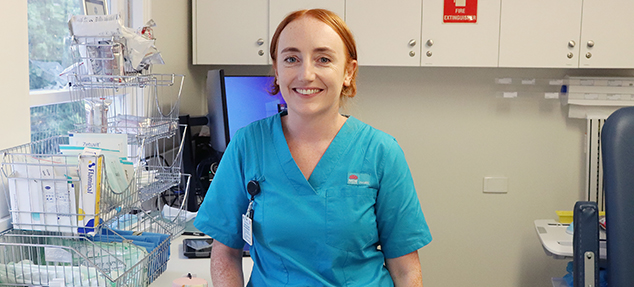
Podiatrist Monique Wilson-Stott cares for patients in the High Risk Foot Service in Lismore, where her team looks after people with complex foot complications with the aim of reducing their need for hospital admission or surgery.
“We are often a point of contact for people with foot wounds, providing wound care and linking them with other allied health services which help people with diabetes reduce their risk of ulceration and amputations,” Monique said.
Following the February and March floods, Monique and the team at Lismore’s High Risk Foot Clinic helped patients affected by the natural disaster get back on their feet, literally.
“It was difficult to contact our patients we knew were displaced, because they had no phone service. Some patients came to the clinic barefoot, with infected ulcers on their feet, they had been rescued and were not able to grab their shoes.
“That can be particularly dangerous for people with diabetes,” Monique said.
“Fortunately, through some generous donations we were able to get people into good shoes relatively quickly to reduce their risk of further injury.
“For those who were exposed to floodwater, we were able to treat them before their condition worsened where they would have needed hospital admission or a significant amputation.”
Monique has worked in community health settings for seven years. Knowing she’s played a part in seeing her patients stay as healthy as they can, is incredibly rewarding.
“Keeping our patients as healthy as possible and out of hospital is our ‘bread and butter’. It’s not only great for the patient and their family, but it’s good for our health system too,“ Monique said.
“We spend a lot of time with our patients and really build a connection with them. Sometimes when they are ready to be discharged from our clinic it’s difficult to say goodbye.”
Podiatry is a profession which forms part of the Allied Health specialties. The term Allied Health encompasses more than 20 professions including physiotherapy, speech pathology, dietetics, counselling and radiation therapy, to name a few.
Allied Health professionals work hand in hand with nurses and doctors across community health, hospitals, aged care and many other settings.
To find out more about working in Allied Health, visit the NSW Health website.